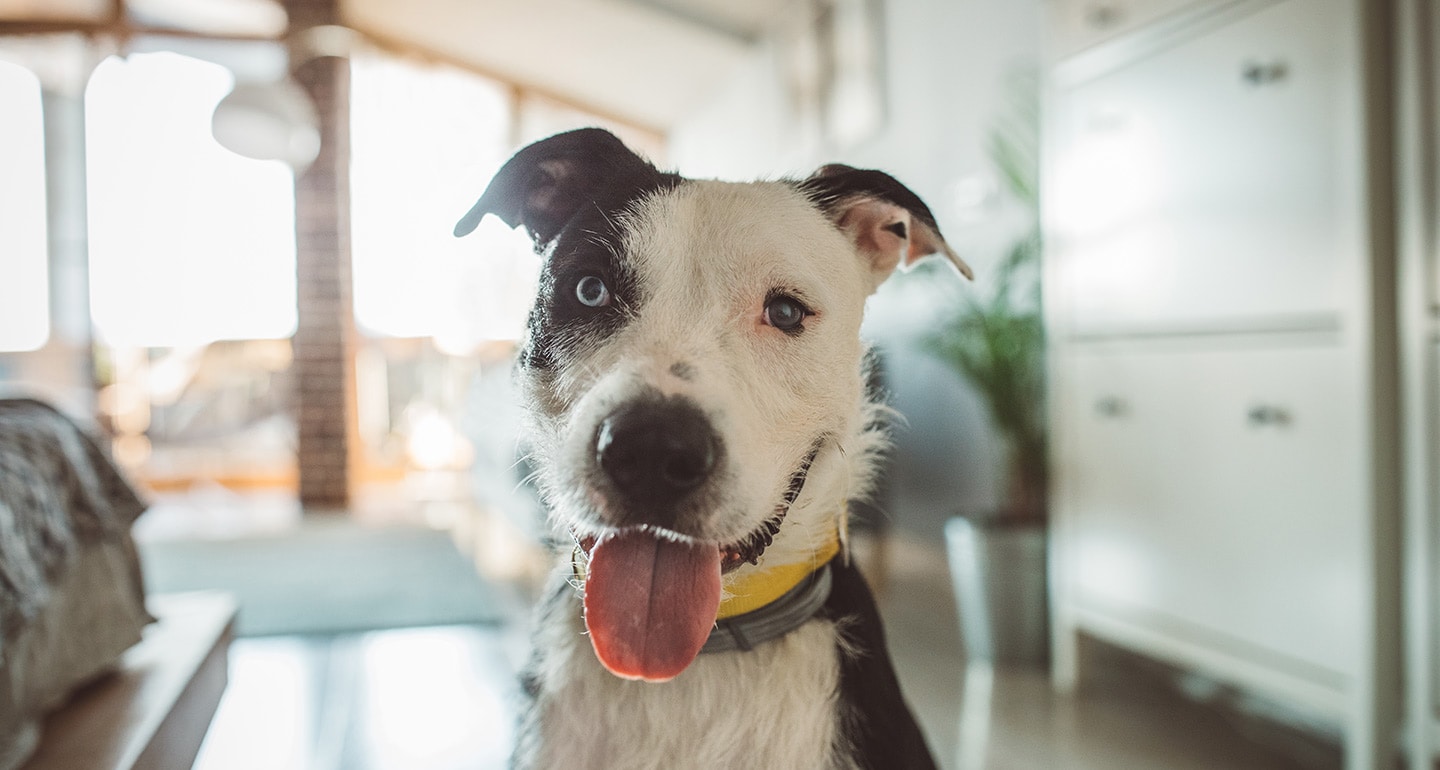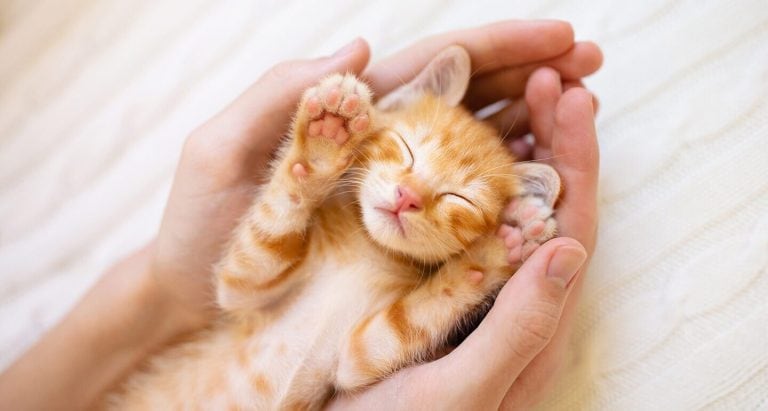So you’re dreaming of caring for a pet, but you’re not ready for a long-term commitment. Don’t despair—you’re not necessarily destined for a life without furry snuggles on the couch. Animal fostering is a great way to get to care for an animal for a couple weeks or months, sometimes even as briefly as a couple days. At the same time, you’ll be giving a pet a break from the stress of shelter life, and helping out your local animal organization. No wonder tens of thousands of people across the country have temporarily taken foster cats, dogs and other pets into their homes.
So, what does it take to be a foster pet parent? We’re breaking down everything that animal fostering entails and how to know if it’s right for you.
What Is Animal Fostering?
Animal fostering is taking in and caring for a pet on a temporary basis. When you foster an animal, you open your home to a pet who’s waiting to be adopted, explains Scott Trebatoski, department director of the Pet Resource Center in Hillsborough County, Florida.
“Fostering is providing care for a pet that is currently in the possession of a shelter or rescue. It can be compared closely to a foster caregiver for a child,” he says. “Fostering helps take the pet out of the institutional setting and place it into a more realistic family/home environment.”
That can do wonders for a pet’s stress levels, which can improve their health and behavior, which makes the pet more appealing to potential adopters, he adds.

Is Animal Fostering on the Rise?
So essentially, animal foster parents don’t just care for their foster pets—they’re helping them become their best selves for their future families.
Most foster pets are dogs and cats, but any type of pet can be fostered, from rabbits to birds to lizards and turtles. If there’s an adoptable animal at a shelter or rescue near you, there’s a good chance that you can make a difference by giving them a temporary home.
Why Do People Foster Animals?
When it comes to fostering dogs, cats and other pets, there are countless great reasons to get involved. Here are a few of the most common:
1 They Want to Help Rescues and Shelters—And the Pets They Serve
Animal foster parents are tremendous resources for rescues and shelters. That’s because, when a foster agrees to care for an animal in their own home, it frees up space in the rescue or shelter for other animals in need. Some animals need more one-on-one attention, like newborn kittens or animals with special medical or behavioral needs. An animal foster parent can help provide the special care that rescue and shelter staff may not have the resources to give.
2 They Can’t Commit to Adopting, But Still Want Pets in Their Life
When you’re an animal lover, the calling to add a pet to your family can feel painfully strong. But responsible pet people know that adopting means committing to years of caring for a pet—and they also know when their lives just aren’t set up to make that commitment. That’s where animal fostering comes in. Fostering is a great way to fulfill an individual's desire to help an animal without having to make a long-time commitment. It affords the flexibility that some people need and allows them to support the life-saving mission of shelters and rescues.
3 They Want to Try Out Pet Parenthood
For many animal lovers, fostering is like a “test drive” before they decide to adopt a pet. If you don't have much animal experience, it’s natural to want to get a feel for taking care of a pet before jumping into a commitment. Taking in a foster cat or dog offers the full pet parenthood experience—with an end in sight.
4 They're Finding Out if a Certain Pet Is a Good Match
In some cases, a person may be interested in adopting a specific animal, but they want to find out if that pet is a good fit for their home and lifestyle before they make it official. Shelters and rescues will often let prospective pet parents foster animals in advance of adopting them. The pets still get the benefit of living in a home environment while their parents decide if they’ve made a good match.
5 They Love Animals
Maybe it goes without saying, but of all the reasons people decide to foster pets, this is the most common one. Foster parents deeply love animals and want to help them in any way, shape, or form they can. What better reason could there be?
Who Can Foster an Animal?
In general, anyone willing to provide a loving, safe home for a pet can become an animal foster, says Samantha Shelton, CEO and founder of Furkids Animal Rescue & Shelters in Georgia.
Specific requirements will vary from one shelter or rescue to another, however. If you’re considering fostering dogs, cats or other pets, check with your local shelter or rescue for what they require.
Shelton’s organization Furkids, for example, doesn’t require potential animal fosters to have experience caring for a pet. However, fosters caring for newborns or animals with medical needs will need experience, and Furkids offers training for anyone interested in learning.

What's It Like to Foster During the Pandemic?
Animal Fostering Responsibilities
Shelton says fosters are responsible for:
- Providing a clean, safe space for the animal to live
- Providing fresh water and food every day
- Interacting with them every day
- Bringing the pet to the shelter, rescue or veterinarian for follow-up medical treatment, as needed
- Bringing the animal to adoption events or meet-and-greets with potential adopters (during the pandemic, this is often handled online)
- Providing regular updates and reporting any medical or behavioral issues to the shelter or rescue
Beyond this, animal fosters will need to be patient and compassionate.
“Most stray and unwanted pets are scared and may react strangely or be difficult at first. Some will have behavioral issues, separation anxiety or other traits that likely will go away after time in a normal home,” Trebatoski says. “Some may have lived lives that require some unconditional love on the part of the foster caregiver to help the pets understand people are good and kind.”
Whether you foster a senior dog or newborn kitten, each type of pet comes with their own challenges and benefits. If you’ve got a certain animal in mind, find out everything you need to know at the stories below:
Can I Foster Animals If I Have Children?
Yes! Many pets interact well with children, Shelton says, making animal fostering a win-win: The animal gets a temporary home, and families get to teach kids the responsibilities of having a pet. Kids are also great at socializing puppies and kittens, she adds, which helps get them ready for adoption.
However, it’s important to let the rescue or shelter know if you have children, so they can find the best match for your family.
“Some pets will like children, some will not. Some are good with young children, others would be better with older children,” Trebatoski says. “Like people, pets are unique, and that’s why we work one-on-one for the best foster placement.”
Can I Foster If I Have Other Pets?
“Absolutely!” Trebatoski says. “Many pets will do better if they have another pet to learn from.”
Sue Hillman and Jennifer Hillman Johnston, co-founders of Tess K9 Rescue & Adoption in San Antonio, Texas agree, saying, “Just like humans, puppies and dogs are social creatures and greatly benefit from the company of other animals.”
But again, it’s important to let your shelter or rescue know if you have other animals at home so they can match you with the right pet. Not all animals become immediate friends or behave well with other pets around, Trebatoski points out. If you have a cat, for example, you don’t want to bring home a dog with a history of aggression towards cats. Providing your shelter or rescue staff with as much information as possible helps them find the right match and make the transition as easy as possible—both for the animal and for the rest of your family.
How Long Does an Animal Foster Last?
Fostering can last one day or several months, depending on the foster's availability and the pet's needs. For example, animals recovering from surgery may only need foster care for a few days, Shelton says. Fostering newborn kittens, on the other hand, typically lasts 6-8 weeks, until they’re weaned and no longer need dedicated care.
Other situations require an even longer stay, like pets who need long-term medical care or an older pet waiting to find their forever home.
“Some pets find homes right away; others need more time,” Trebatoski says. If you’re able to foster only for a specific period of time, let your shelter or rescue know so they can match you with the right pet, and so they can plan for arrangements for the animal after they’ve left your home, if necessary.
How Much Does It Cost to Foster a Pet?
Like so many of the details of animal fostering, the answer to this question depends on your shelter or rescue. Many shelters, Furkids included, provide foster parents with all the basics they’ll need to care for a pet—including food, kitty litter, toys, bedding, leashes, and collars, as well as medical care—until they find the pet a permanent home. Other rescues and shelters, like the Pet Resource Center and Tess K9 Rescue, ask that fosters cover the cost of food and other basic needs.
Some organizations may provide basics like food but not medical services like vaccinations, or vice versa. The best way to estimate the total cost of fostering a pet is to ask your local rescue or shelter for a full list of what you’ll be expected to provide and an estimated price for each.
What If I Fall in Love with My Foster Pet?
What if you get so attached to your foster pet that you just can’t say goodbye?
Shelton says this common occurrence is often called a “foster fail”—but it’s not really a failure at all.
“Foster fails do happen approximately 50% of the time, and in our organization [we] always welcome them! An adoption is an adoption and is always celebrated,” she says. “We like to call it a foster success!”

Looking for Foster Fail Love Stories?
If you absolutely fall in love with your foster animal, let the shelter or rescue know as soon as possible, so they can stop advertising the animal for adoption and start the process of making your home their forever home, Shelton says.
How to Become an Animal Foster Parent
If you’re considering fostering an animal, the first step is to contact your local rescue or shelter to learn about their foster program. You may be asked to first submit an application with information about your home environment, your availability to be a foster, and the types of animals you’d like to foster.
“Much like the adoption process, we have a conversation about their lifestyle and their home,” Shelton says. “We like to find out if they have other pets, what their experience is with pets and what their home routine looks like so we can make sure to place the best fit for them. We review the availability of the foster and are sure to match them with the pet that suits their lifestyle.”
Whether you foster just one pet or offer your home to dozens in the years ahead, you’re doing a great thing to help an animal and your local community.
“Foster care is becoming the new lifeblood of the shelter and rescue community,” Trebatoski says. “More pets will experience a good life, less stress and make a good transition to a new home if they are in foster homes rather than the traditional shelter.”
Share:
















